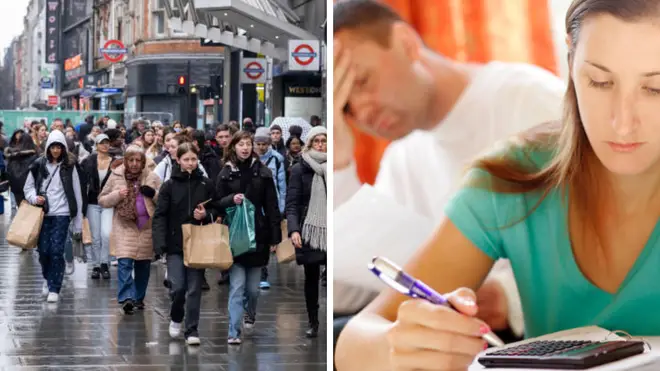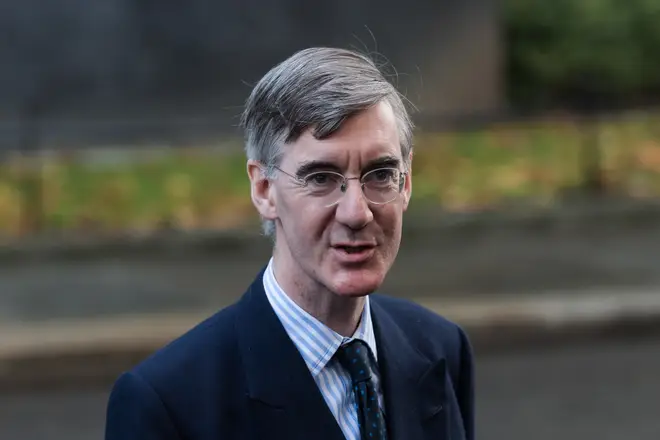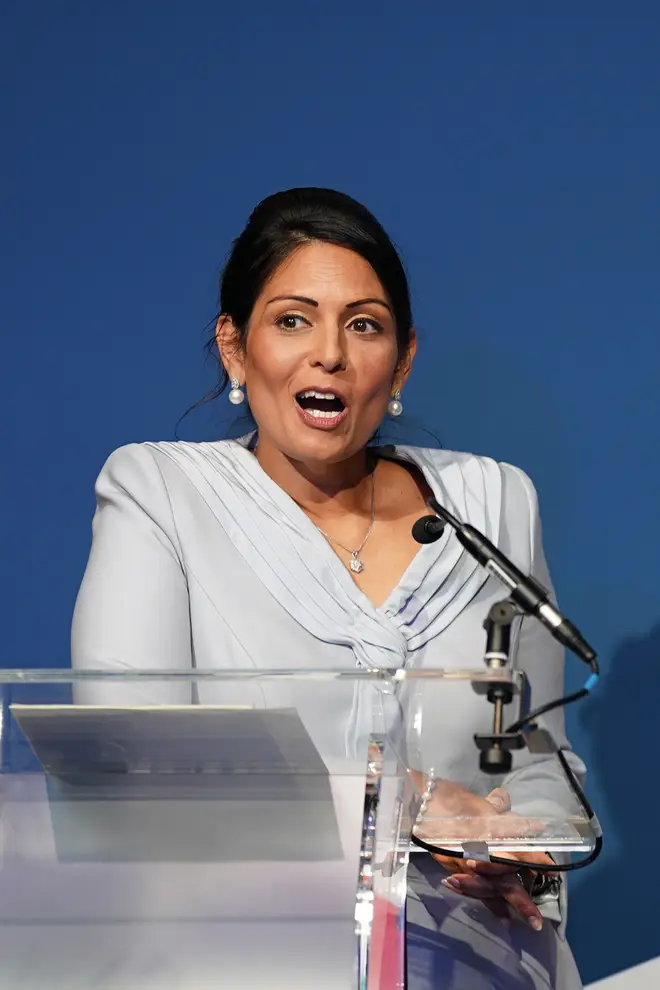
James O'Brien 10am - 1pm
16 March 2023, 00:54

British people are set to bear the biggest tax burden since the Second World War, with household incomes expected to plummet by record levels after the Budget announcement on Wednesday.
The Office for Budget Responsibility (OBR) said that six million people would be hit by ‘stealth taxes’, like freezes for tax thresholds, over the next five years, boosting government coffers by £120 billion. The independent economic analysts said this would be the equivalent of a 4p increase in the base rate of tax.
The UK’s tax burden is on track to hit 37.7 per cent of GDP, the OBR added. Freezing income tax thresholds mean 3.2 million people will start paying in the next five years, 2.1 million will move up to the higher 40p rate, and 350,000 more will pay the 45p rate.
Meanwhile corporation tax will rise to 25% from 19%, although businesses will be able to write off investments in the UK against taxable profits under a new £9 billion-a-year scheme.
The OBR expects a record drop in household incomes of nearly 6% over a two-year period, driven by the tax hikes and inflation, which is still rising ahead of earnings, although it is set to come down markedly this year.

IFS chief @PJTheEconomist warns Household incomes are ‘shrinking'
Other key announcements in the Budget on Wednesday included 30 hours of free childcare per week for all children older than nine months, the increase of pensions annual tax-free allowance from £40,000 to £60,000, and the abolition of the pension lifetime allowance, previously set at £1.07m.
Commenting on the historically weighty tax burden, Paul Johnson of the Institute for Fiscal Studies told LBC: "There’s actually a very big tax rise coming in April – all of our income tax thresholds and allowances are being frozen – that’s effectively a £500 tax increase for most basic rate taxpayers, and a £1,000 tax increase for most higher rate taxpayers."
Simon Clarke, a Conservative MP and former chief secretary to the Treasury, said that the tax increases were not "sustainable".
He told LBC: "The country has been through hell over the last few years, through the pandemic, through the consequences of what's happened in Ukraine. No one and no government I think could be expected to have delivered a low tax Elysium in light of that.

Tory MP: ‘I think a B+ would be a very fair assessment of where the government is today.'
"But we do have to be clear, this isn't a sustainable position. It isn't good for growth. And it is something which as a government, we should be determined to address. And I think that does mean making some different decisions."
In a report released in response to the Budget announcement, the OBR said real household disposable income (RHDI) per person was expected to fall by a cumulative 5.7 per cent over the two financial years 2022-23 and 2023-24.
"While this is 1.4 percentage points less than forecast in November, it would still be the largest two-year fall since records began in 1956-57," the OBR said.
"The fall in RHDI per person mainly reflects the rise in the price of energy and other tradeable goods of which the UK is a net importer, resulting in inflation being above nominal wage growth.
"This means that real living standards are still 0.4% lower than their pre-pandemic levels... But they are 0.6% higher than we forecast in November thanks to lower market expectations for medium-term gas prices and the upward revision to potential output."
Conservative MP and former business secretary Jacob Rees-Mogg warned the government that the increased corporation tax is "not a good approach" to encouraging investment in the UK.

Mr Rees-Mogg hit out at the planned tax rise for companies while describing tax allowances in the Budget as an attempt to "salami-slice" the hike to "pretend it's not much of a rise".
Senior Conservatives, including Mr Rees-Mogg and former home secretary Priti Patel, urged him to rethink the corporation tax hike.
North East Somerset MP Mr Rees-Mogg described several measures in the Budget, such as scrapping the lifetime tax-free pension allowance, as "very welcome". He added: "So, we have a rise now in corporation tax, but we then sort of salami-slice it a bit with some capital allowances to pretend it's not much of a rise. This is not a good approach to tax policy.
"The best approach to tax policy is low tax rates with few exclusions; we hear powerful arguments from the other side against tax avoidance, but this is setting up a tax avoidance scheme that companies are being asked to carry out because the Government thinks it may be a way businesses will spend money that's approved by the Government.
"But, actually, who knows best how to spend that money? Businesses."

Former Home Secretary MP Ms Patel, meanwhile, encouraged the Government to keep the level of corporation tax "under review".
She said: "Just on the issue of corporation tax, when it comes to the wider prospectus of the minimum rate of corporation tax ... we know that the introduction of the minimum effective tax rate will be delayed in Washington and other countries, and I would just ask him again to think carefully about the timing of this. Why now?"
Conservative former minister Sir John Redwood also compared the UK's approach to taxing businesses with the US and the Republic of Ireland, both of which he claimed have taken measures more likely to boost growth.
Sir John claimed the US's Inflation Reduction Act would offer "all sorts of tax breaks, incentives and subsidies for a wide range of industries", acting as a "magnet" to investment.
On Ireland's taxes, he added: "The proof that lower rates produce more revenue and help more growth is in the way in which Irish GDP per head is so much higher than the United Kingdom's, and the way in which business tax per head raised is so much higher in the Republic of Ireland than it is here at home in the United Kingdom."
Labour's shadow chancellor Rachel Reeves has said the Chancellor's budget is "just papering over the cracks".
"This Budget was a chance for Government to unlock Britain's promise and potential," she tweeted.
"But with growth downgraded, the hit to living standards the largest since records began, and a tax cut for the top 1% they are just papering over the cracks. "Labour will build a better Britain."